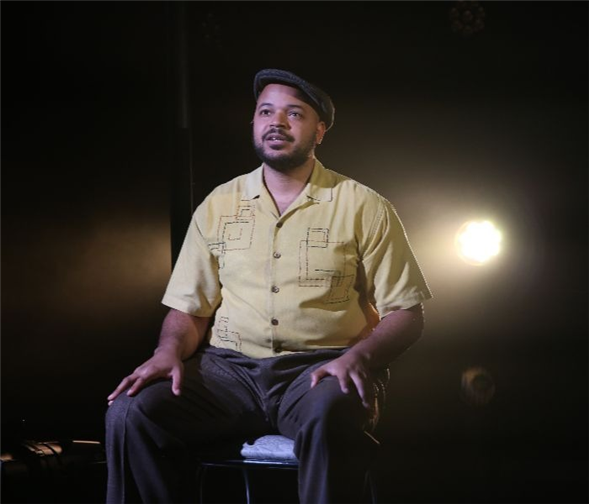Translate Page

The unusual development of Broadbend, Arkansas
---
It's ironic that Broadbend, Arkansas -- the new two-person musical about an African-American father and daughter grappling with the personal impact of racial oppression in the '60s and '80s -- started off as a monologue about an elderly Southern white woman living in a nursing home during the pre-civil rights era.
Titled Just One "Q", that original piece was created by playwright and lyricist Ellen Fitzhugh for the Inner Voices series, which pairs writers with composers and commissions them to craft sung-through soliloquies. Fitzhugh's libretto was inspired by her paternal grandmother, a difficult woman who often alienated those around her. Fitzhugh decided to tell her story through the eyes of a fictional black orderly named Benny. Despite their racial and gender differences, the writer saw Benny as a stand-in for herself. "He really sort of stands for all of the people in our family who had to figure out how to put up with her, how to do right by her," she says.
Fitzhugh was teamed up with Ted Shen, a former investment banker turned composer who is also a major supporter of new musicals through his Shen Family Foundation, which has awarded grants to Michael John LaChiusa, Adam Guettel, Jeanine Tesori, Arlington, VA's Signature Theatre and New York's Public Theater, to name a handful. As Shen worked on Just One "Q", he found himself longing to know more about Benny and his family. He also wanted to dig deeper into the racial dynamics of mid-century Arkansas, which were only hinted at in Fitzhugh's piece. So Shen proposed they create a companion monologue in which "issues surrounding race could go from being kept completely under the surface to kind of exploding to the surface," he recalls.
Fitzhugh wasn't up for writing that, but she gave Shen her blessing to pursue the idea on his own. He sketched out a synopsis and took it to his friend Oskar Eustis, the artistic director of the Public Theater, who was intrigued. Shen was then introduced to Harrison David Rivers, an African-American playwright who had been part of the Public's emerging writers group.
{Image1}
Using Shen's outline as a foundation, Rivers crafted a second monologue set 27 years after the first that centers on Benny's now-grown daughter Ruby, whose teenage son has been beaten up by the police. Rivers had never written songs before but his lyrical style fit the project. "I lean into heightened language that allows my characters to say things that are truly deeply felt and meant," he says. Both men agree that pairing Rivers' words with Shen's music turned out to be "a very easy transition."
The final challenge was finding a way to link the two monologues while preserving the integrity of each story. That was accomplished with what Fitzhugh calls "a bridge" that she added at the end of the first monologue. Her coda focuses on Benny struggling with how involved he should be with the Freedom Riders, who faced violent pushback from die-hard segregationists, including the cops who were supposed to protect them.
The result of this uncommon piecemeal collaboration is Broadbend, Arkansas, named for the fictional town where both halves are set. Starring Justin Cunningham and Danyel Fulton, it's having its world premiere at the Duke on 42nd Street in a co-production between the Public Theater and the Transport Group, whose artistic director, Jack Cummings III, helmed the show. Although each section stands on its own and has a distinct vibe -- which is enhanced by Shen purposefully using a jazz style for part one and a 20th-century classical feel for part two -- the tales inform and echo one another.
They also resonate with what's happening in right now. Although Act I is set in 1961 while the second half takes place in 1988, the parallels to today are obvious as the country wrestles with the rise of white nationalism, the shootings of young black men by white cops and racially motivated hate crimes.
"I wish that kind of violence was obsolete," says Rivers. "Hopefully, by looking at this musical and watching how these individuals work through their circumstances, we can maybe apply some of that forward momentum to our own lives."
---
TDF MEMBERS: At press time, discount tickets were available for Broadbend, Arkansas. Go here to browse our current offers.
Janice C. Simpson writes the blog Broadway & Me and hosts the BroadwayRadio podcast Stagecraft.
Top image: Justin Cunningham in Broadbend, Arkansas. Photos by Carol Rosegg.